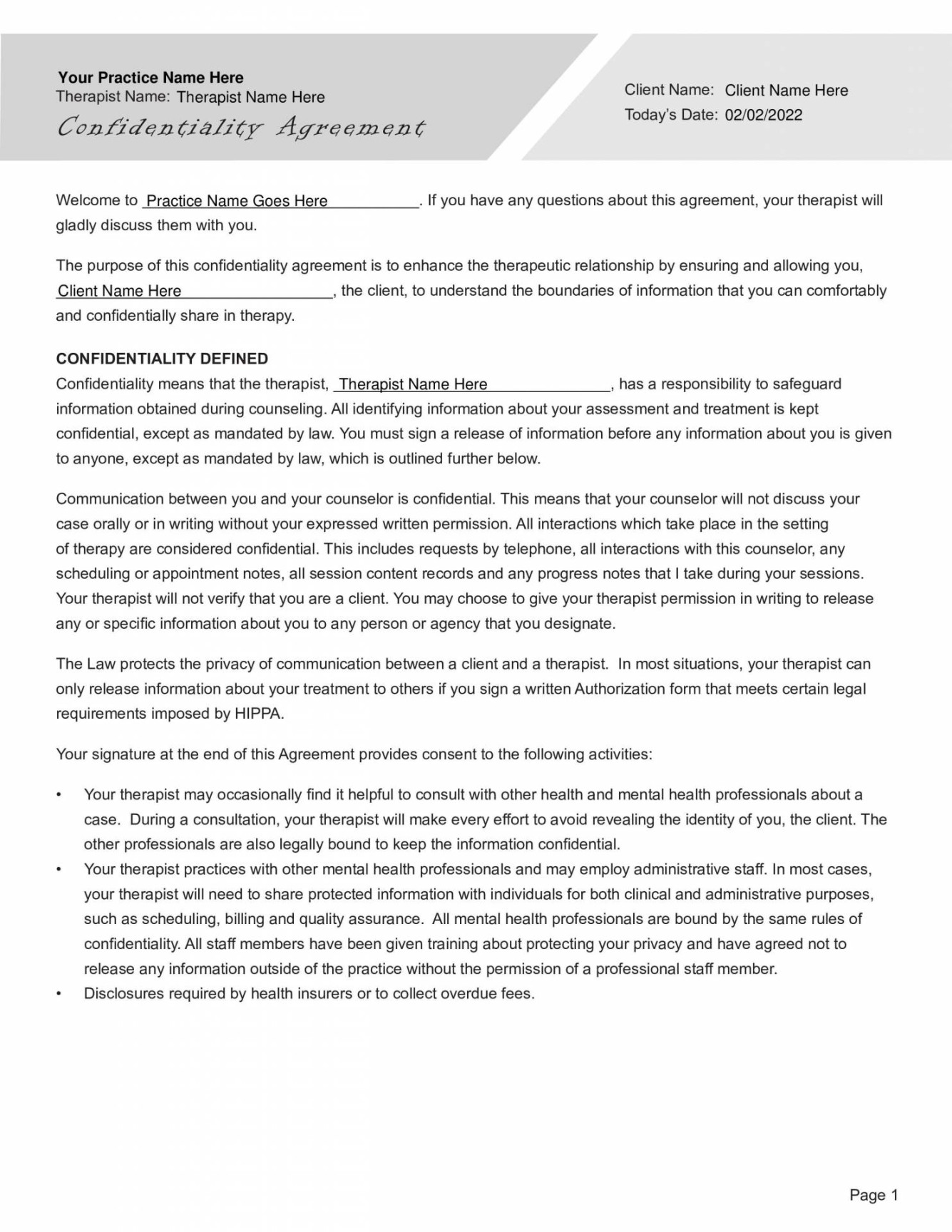A therapy confidentiality agreement template is a legal document that outlines the specific terms and conditions under which a therapist will keep a client’s personal information confidential. It is essential for establishing trust and maintaining a safe therapeutic environment.
Key Components of a Therapy Confidentiality Agreement Template

A well-crafted therapy confidentiality agreement template should include the following essential components:
Identifying Information
Therapist’s Name and Contact Information: Clearly state the therapist’s full name, professional credentials, and contact details.
Scope of Confidentiality
Definition of Confidential Information: Define what constitutes confidential information, which may include any information disclosed by the client during therapy sessions, including personal, medical, or psychological details.
Confidentiality Obligations
Therapist’s Duty of Confidentiality: Clearly state the therapist’s obligation to maintain the confidentiality of the client’s information, except as permitted by law or agreed upon in writing.
Client’s Rights and Responsibilities
Client’s Rights: Specify the client’s rights, including the right to access their own records and the right to request corrections to any inaccuracies.
Termination and Dispute Resolution
Termination of the Agreement: Specify the conditions under which the agreement may be terminated, such as by mutual consent or upon completion of therapy.
Governing Law and Jurisdiction
Governing Law: Specify the law that will govern the agreement.
Design Elements for a Professional Therapy Confidentiality Agreement Template
The design of a therapy confidentiality agreement template should convey professionalism and trust. Here are some key design elements to consider:
Clear and Concise Language: Use clear and concise language that is easy for the client to understand. Avoid legal jargon that may be confusing.
By carefully considering these components and design elements, you can create a professional therapy confidentiality agreement template that effectively protects the client’s privacy and establishes a strong foundation for a trusting therapeutic relationship.